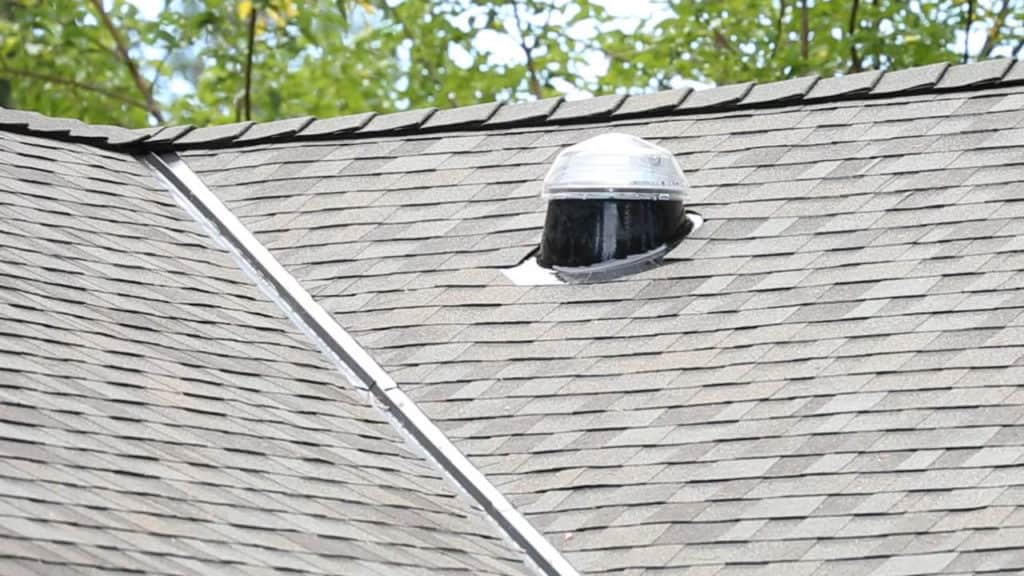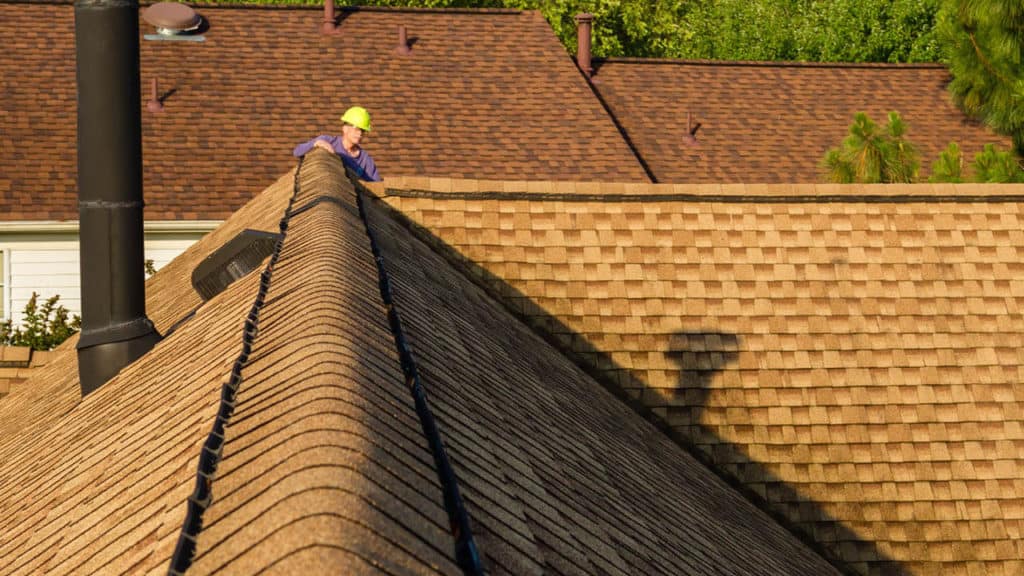Asphalt shingle roofing is quite popular in many parts of the US, especially San Antonio. Most homeowners choose asphalt shingles because they come in various options and offer a wide range of benefits.
If you decide to go with an asphalt shingle roof for your home, it’s crucial to consider its pros and cons. Like many other roofing materials, they are good in certain areas but limited in others. Today, we focus on the limitations.
What is Asphalt Shingle Roofing Material
Before we look at the cons of asphalt, it’s important to know what asphalt is. Apart from being a popularly affordable roofing material, many homeowners will pick it without even proper understanding.
So, what do asphalt shingle roofs have that are so unique? Well, the material features asphalt-saturated bases crafted from fiberglass or organic material. Waster paper, asphalt, salt coatings, and ceramic granules are combined to make organic shingles. On the other hand, fiberglass shingles are fibre glass coated in asphalt and mineral coatings like mica, slate, and stone, among others. It’s these coatings that give the shingles their water- and fireproof capabilities.
Contractors mostly use the “three-tab” pattern to install asphalt shingles. Although, there are many other options on the market.
Being the most affordable roofing material is one of the significant advantages of asphalt shingles and perhaps the reason for their popularity. An entire roof can be installed quickly and with far fewer expenses than tile or metal roofing.

What Are the Disadvantages of Asphalt Shingles?
Yes, asphalt is a very popular roofing material. Anyone who wants affordability and convenience will choose asphalt shingles. But you still need to pay attention to the limitations. Consider the following:
Less durable
When investing in roofing material, it’s more beneficial picking something that will last for many years. A shingle roofing is affordable in the initial installation cost, but it will cost you more in the future.
Averagely, asphalt roofing can last for 25 years if properly installed and maintained. Tile roofs, on the other hand, can last up to 100 years – three times more than shingle roofs. With that in mind, you can make your calculations and see what to go for.
Different asphalt materials will last differently. Glass fibre shingles, for instance, tend to last much longer than wood shingles. This is another important consideration when it comes to finding the perfect roofing material.
Strong winds can easily lift a roof shingle
Wind and other elements are always a major concern in residential roofing. People who live along the coast often face tropical storms and hurricanes, which can easily lift off a light roof.
If the high winds blow for a long time, the chances of ripping off your shingle roof are very high. Even with the best roofing installations, the winds can sometimes be too much.
For this reason, you need to take homeowner’s insurance coverage. This will cover the replacement of your roof structure, saving you from spending too much money on repairs and roof replacement.
Shingles are prone to mildew
Excess moisture may lead to the growth and spread of mildew in asphalt slate roofs. Water accumulates in roof edges, sometimes leaking through the walls to build mold. Architectural shingles tend to offer better protection against such problems, but it’s still a major concern for many homeowners.
Regular cleaning can help combat mildew. But this can potentially damage the material. We recommend that you always consult with a professional on such matters.

Vulnerable to extreme heat
Even though asphalt is among the most popular roofing materials, it does not handle roof-damaging UV rays very well. Yes, it comes with fireproof features, but more is needed when the UV rays become consistent during summer. You will notice this when the roofs begin to fade slowly. Sooner or later, you will have to get a new roof or repaint the existing one.
An experienced roofer recommends investing in that extra protection layer during the initial installation process. Your roof will then last for a longer period. And if properly maintained, you are sure to get the maximum lifespan.
Not the best choice for energy saving
Some of the popular roofing materials on the market have incredible insulation value, which saves the homeowner some energy bills. We always mention this when looking at the advantages and disadvantages of various roofing systems. Unfortunately, this is a disadvantage for asphalt shingles.
If this is an important factor for you, choose a different roofing system. But if you are fine with installing AC systems, asphalt shingles are still a good option.
Installation issues
If asphalt shingles are installed correctly, you may not have to worry about some of these issues. Strong slopping structures can be challenging to install shingles and work on other things like vent flashings or wall terminations effectively. This leads to structural problems that might force a re-roofing project.
Luckily, this is a problem that you can easily avoid by hiring the most competent roofing contractor. Take your time to review the roofer you want to use and decide based on their track record.
Threat to the environment
Asphalt shingles are made from either organic materials or fiberglass. Organic shingles are more eco-friendly, and some manufacturers will ensure they present this value. Shingles made from petroleum and fiberglass are not the greenest option on the market. When heated, the material releases greenhouse gasses into the atmosphere. Fiberglass, a material that makes asphalt shingles waterproof, also releases toxic pollutants to the air, including styrene. Fibreglass shingles may therefore not be the best option for the environment.
Conclusion
Are you thinking of roofing your home with asphalt shingles? Let the experienced installers at Bison Roofing recommend the best material and roofing style for you. They will help you avoid some of the limitations above.
